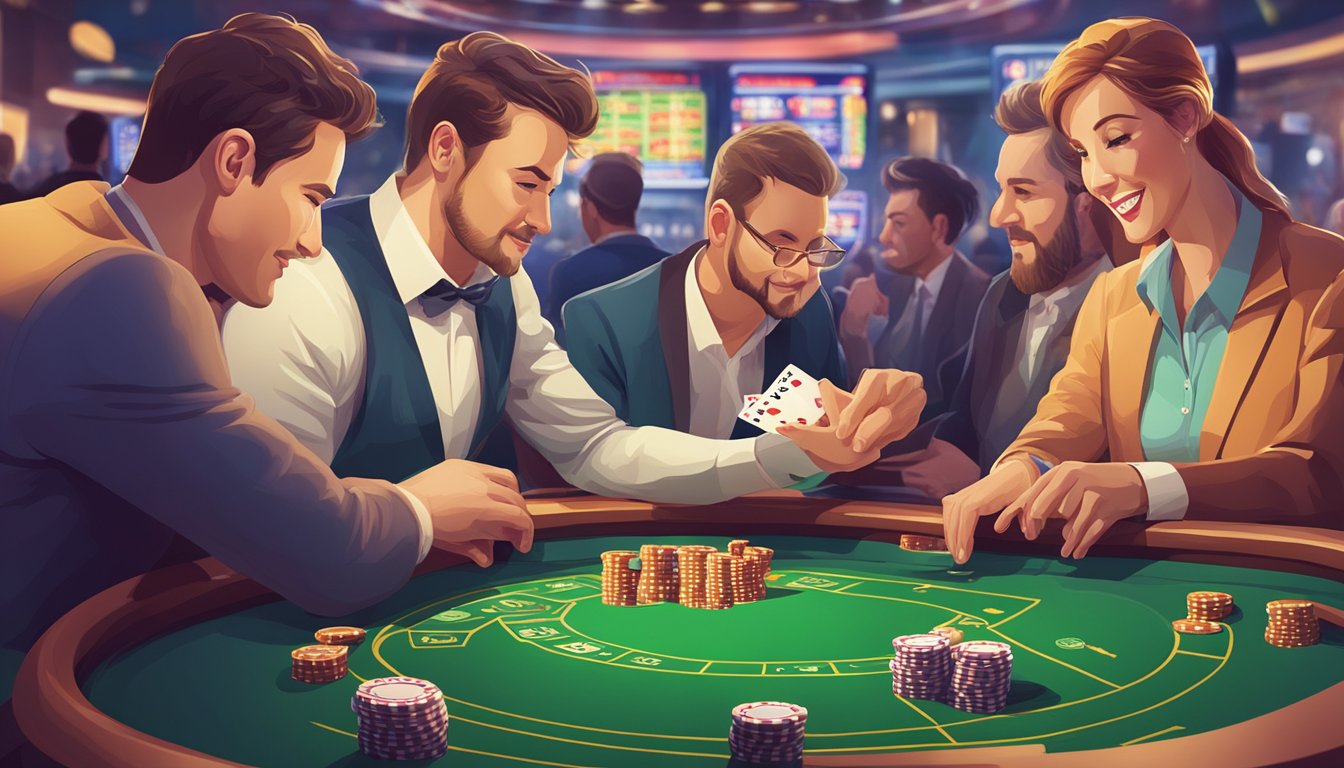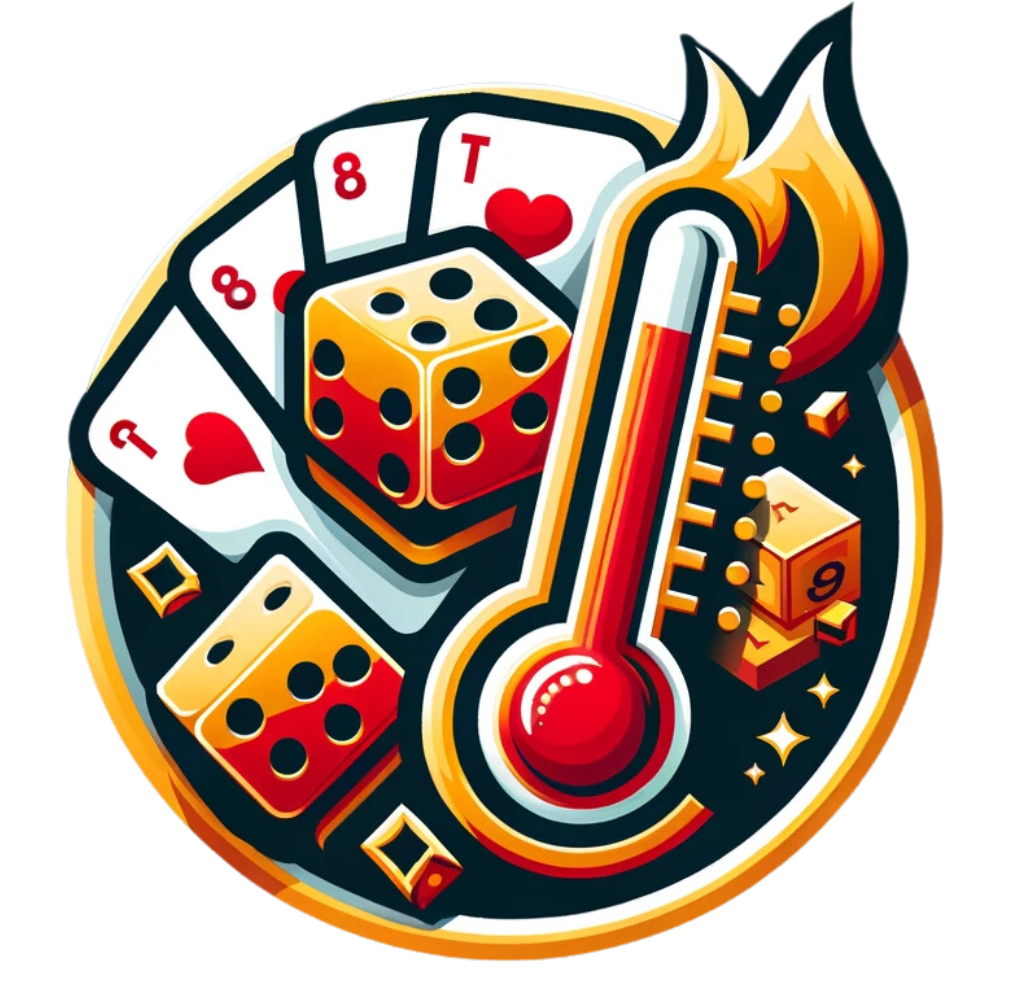Overview of Gambling
Gambling is an age-old activity where I take a chance and bet something valuable, often money, on an event where the outcome is not certain. I know there’s a risk involved, but the thrill of possibly winning something more valuable is enticing. It could be any game or contest where chance plays a role in determining the winner, or it might be an event where the outcome is unexpected due to my miscalculations.
Here’s what I understand about the essence of gambling:
- Consideration (The Wager): There’s always something at stake that I’m hoping to multiply.
- Risk (Chance): My success isn’t guaranteed. There’s a significant element of risk because the event’s result can be due to pure chance.
- Prize: The potential to win something else of value, which motivates me to take the risk in the first place.
The types of gambling I come across are quite varied, including:
- Casino games: Like poker, blackjack, and slot machines.
- Sports betting: Where I predict sports results and place a wager on the outcome.
- Lotteries: Where I buy tickets with the hopes of winning large sums of money.
In my experience, gambling always requires a careful balance. It’s easy to get caught up in the excitement, but it’s crucial to gamble responsibly and within the boundaries set by law and personal limits.
Types of Gambling
As I explore the various gambling options available, I find that each brings a unique blend of excitement and the possibility of reward.
Casino Games
Casino games are the heart of traditional gambling establishments. I’m talking about classics like blackjack, where strategy can play a role, and roulette, which is largely a game of chance. Slots are especially popular; they come in versions like traditional three-wheel or the more sophisticated video slots. Casinos also offer games like craps and baccarat.
Sports Betting
Sports betting allows me to put money on the outcome of various sports events, from football and basketball to horse racing. The odds vary greatly, depending on the teams’ or players’ perceived strengths. My knowledge of the sport can significantly influence my betting choices.
Lotteries
Lotteries offer me the chance to win large payouts for a relatively small stake. The outcomes are purely chance-based, with players choosing numbers in hopes of matching those drawn.
Poker
Poker is a game of skill and psychology where I can compete against other players. Different variations, such as Texas Hold’em and Omaha, provide a range of styles and challenges.
Online Gambling
Online gambling allows me to enjoy many types of gambling activities over the internet. This can include casino games, sports betting, poker, and bingo. The convenience and variety are incredible here.
Bingo
Bingo is a social gambling activity where I match numbers on a card to those called out. It’s simple, yet the community aspect can be really engaging.
Gambling Concepts
In exploring gambling, I’ll shed light on the critical factors that define its nature, from the role of chance to the calculations that govern play outcomes.
Chance vs. Skill
Chance-based gambling involves games where the outcomes are purely random. Think of a roulette wheel or lottery; my win depends solely on luck. On the other hand, skill-based gambling includes games like poker or blackjack, where my decisions significantly affect the results.
Odds and Probabilities
Understanding the odds is crucial for any gambler. They represent the likelihood of a particular outcome. Probabilities, usually expressed as percentages, indicate my chances of winning or losing. Higher probabilities mean I’m more likely to win, but the payouts are typically lower.
House Edge
The house edge is the built-in advantage that casinos have in every game. It’s the percentage of my bet that the casino expects to keep over time. For example, if a game has a house edge of 5%, the casino expects to make an average profit of $5 for every $100 wagered.
RTP and Variance
Two more concepts I find interesting are RTP (Return to Player) and variance. RTP is a percentage indicating the amount of wagered money a slot machine will pay back to players over time. Variance, on the other hand, tells me about the risk involved; high variance means rarer but larger wins, while low variance implies frequent but smaller wins.
Legal and Regulatory Framework
In the United States, the landscape of online gambling is primarily governed by both federal and state laws. Initially, federal statutes like the Wire Act and the Unlawful Internet Gambling Enforcement Act (UIGEA) provide a baseline for what’s permissible. However, it’s mainly at the state level where the nuts and bolts of online gambling are ironed out.
States have the autonomy to define their legal stance on gambling. This can range from complete prohibition to fully regulated markets. State laws are crucial because they dictate not only the types of gambling allowed but also the regulatory requirements for operators. It’s a melting pot of statutes, each with its own set of rules concerning everything from licensing to consumer protection.
Here’s a glance at some key federal laws:
- The Wire Act: Restricts the use of “wire communication” for certain types of gambling activities across state lines.
- UIGEA: Targets the financial transactions tied to online gambling, aiming to prevent banks from processing these transactions.
Interstate and foreign gambling activities are particularly scrutinized to ensure compliance with both federal standards and state codes. This complex legal framework aims to avoid any attempts at circumventing regulations via cross-border or online channels.
When you’re wondering about the legality of a gambling activity, it’s wise to consider these layers of laws. The digital age has further complicated matters, as the interpretation of old laws is continuously tested against new technologies and trends. As I navigate through the nuances of these laws in my research and writings, I ensure to stay up-to-date with the latest legal shifts and debates swirling around this sector.
Responsible Gambling
I believe it’s essential to understand that responsible gambling involves enjoying gambling activities without letting it negatively impact your personal life or finances. Here, we’ll look at how to spot when gambling might become a problem and where to find help if needed.
Recognizing Problem Gambling
Problem gambling can creep up on anyone, and it’s crucial to recognize the signs early. I’ve seen that excessive spending on gambling activities is a clear indicator. It often leads to significant financial harm and can be accompanied by a loss of control, where I might feel compelled to continue gambling despite negative consequences. It’s about being mindful of my behavior and checking in with myself to make sure I’m still gambling for fun and not to escape other issues.
Prevention and Help Resources
If I suspect that gambling is becoming an issue, there are resources available to help. For instance, the National Council on Problem Gambling offers support and can guide me to local help options. Strategies like setting strict limits on the time and money I spend gambling, never viewing gambling as a primary source of income, and taking regular breaks are key prevention methods. It’s all about balance and making sure that gambling remains a recreational activity, not a necessity.
Economic Impacts of Gambling

When I think of gambling, the economic effects it has on society often come to the forefront. It’s fascinating to see how it can both benefit and challenge economic structures. The increase in legal gambling across the United States has brought substantial economic benefits to various communities. This includes job creation, where casinos and betting establishments not only offer direct employment but also spur job opportunities in adjacent services like hospitality and tourism.
Revenue Generation: Gambling can lead to a significant inflow of tax revenues for government bodies. More money for the public coffers could mean better infrastructure, schools, and social services. Areas with gambling establishments may see an enhanced flow of cash, which could stimulate local economies.
- Direct Effects: Employment opportunities and a boost in local businesses due to increased footfall.
- Indirect Effects: Additional tax revenues can result in improved public services.
At the same time, it’s necessary to be aware that gambling might not always be the economic boon it promises to be. There are several instances where the expected financial upliftment falls short, or the costs outweigh the benefits.
Socioeconomic Concerns: While the injection of cash from gambling might sound positive, I acknowledge that it’s important to balance this with a consideration of potential socioeconomic costs. These can include issues such as problem gambling, which might lead to increased social welfare expenses.
- Potential Risks: The potential for increased crime, political corruption, and the possibility of creating economic disparities.
In short, gambling carries with it a complex blend of potential economic upsides and downsides. As an engaged member of my community, I believe it’s crucial to monitor these impacts closely to ensure the long-term well-being of our economic and social fabric.
Social and Psychological Aspects

From my understanding of the topic, gambling isn’t just a financial activity; it’s intricately linked to the psychology and social fabric of those who participate in it. I’ve learned that gambling offers an “illusion of control” where I, as a gambler, might believe I have an influence over an outcome that’s ultimately left to chance.
Psychological Factors:
- Risk Perception: How I view the risk involved in gambling can greatly influence my behavior.
- Illusion of Control: I might believe, incorrectly, that I have the skill to affect the game’s outcome.
Socially, gambling serves various purposes too. It can be a way to socialize or escape day-to-day pressures. However, it’s critical to acknowledge that for some, gambling becomes more than casual entertainment. For these individuals, gambling can lead to addiction, driven by a complex mix of psychological factors and the experienced “high” from winning, which can be similar to drug-induced euphoria.
Social Factors:
- Peer Influence: My friends and others around me can significantly impact my gambling habits.
- Accessibility: The ease of accessing gambling venues and online platforms can alter my engagement with gambling.
In the realm of problem gambling among adolescents, the blend of psychological, and social dimensions becomes even more pronounced. It’s not just about the individual behavior but also about how the environment and social relationships contribute to the rise of gambling issues.
- Problem gambling can indeed be multi-faceted, influenced by personal traits, family dynamics, and my own propensity towards risky behavior. Recognizing and understanding these factors is paramount in addressing problem gambling effectively.



